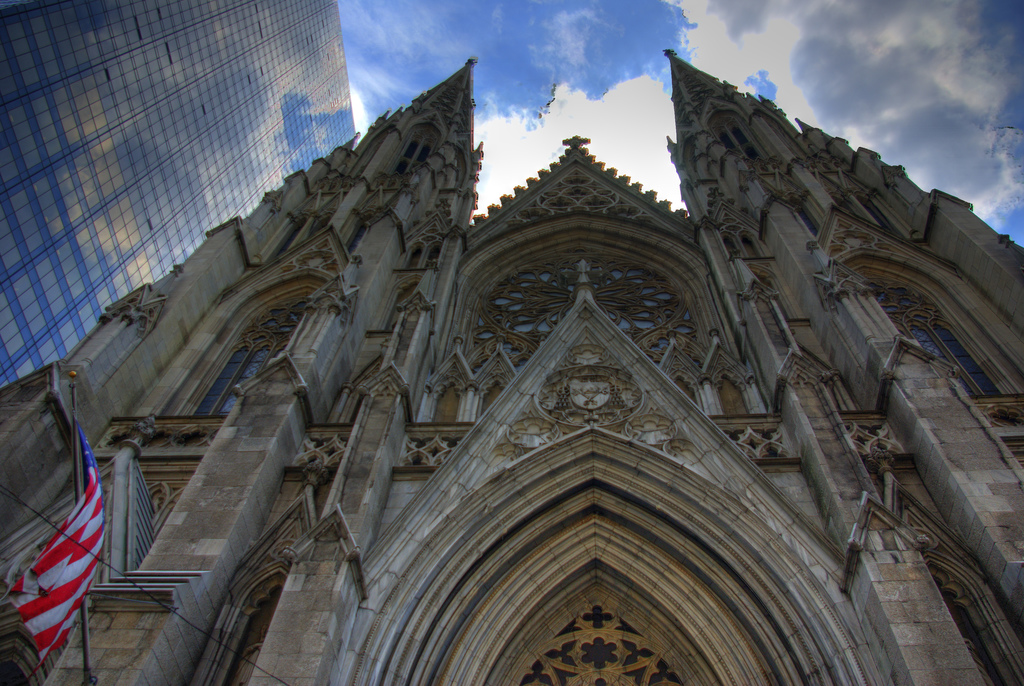The day is cold and gray. For a few minutes however, a silvery light glistens off the rippling creek. The waterway makes a gentle S curve at this spot, and I can see a quarter-mile downstream.
It’s a quiet, relatively secluded picnic site, and I often take meditations during winter here. Young people smoking pot, or homeless people gathering to eat food they’ve been able to find frequent the place.
Graffiti is plastered over the table and benches, and I often pick up litter left behind before taking my seat. But today the place is clean, and someone has erected a stupa stack of small stones in the middle of the table. It brings a smile. One has obviously been noticed taking meditations here.
About 100 meters away, a surprising number of people go by on the pedestrian road across the stream. At the end of the hour, one is completely alone without a trace of loneliness, beyond the world without being separate from it.

Meditation begins when the fire of unwilled attention is ignited by passive watchfulness of the movement of thought and emotion in the mirror of nature. The accretions of the past are burnt away without leaving ashes.
The familiar suddenly becomes unfamiliar, and a gaping hole in a tree trunk stuck in the middle of the stream appears strange beyond words.
Meditation means spontaneously leaving the stultifying two-dimensional reality of the known and entering the limitless multi-dimensionality of the unknown.
It’s a phase shift beyond words and knowledge, bringing an ecstasy beyond personal emotion. Experiencing that state of being is the most important thing in life. Why is it not the rule within one and others?
With every meditation in nature now, the observer/self ends, attention gathers, and thought/time stops. These furloughs from the prison of human consciousness are no longer good enough however.
Since the human brain has the capacity for experiencing the numinous, why isn’t its natural resting place stillness? Why, in other words, do the noise, darkness and suffering of ‘normal’ consciousness still rule?
Some psychologists pronounce that “continuity is everything, and it is change that causes the problems.” That is entirely backasswards. The continuity of thought and emotion lies at the root of suffering, and most mental and emotional illness.
Inner peace and impersonal love have their source in silence and discontinuity of thought, not in the continuity of thought and emotion. When the observer and self yield to choiceless awareness and undirected attention, and mind falls completely silent, there is stability, peace and joy.
Most people are carried along by the tides of human consciousness, driven by inner and outer currents of which they are unaware, comfortable in the illusion that they choose and are in control of their lives.
Reason has failed to bring about inner and outer order. The institutions of the ‘Enlightenment’ have eroded beyond repair. What can bring about a new human being and culture?
Ernest Renan, the French philosopher and historian of religion (he penned such books as “The Life of Jesus,” and “What Is a Nation?”), wrote in 1866:

“Let us enjoy the liberty of the sons of God, but let us take care lest we become accomplices in the diminution of virtue which would menace society if Christianity were to grow weak. What should we do without it?”
What indeed, since the fact that so many Christians embrace a vulgar, venal and completely amoral president as their “chosen one” attests to the moral bankruptcy of Christianity.
The alienation and anomie of a life devoted to indulgence of the self is the outcome of the suppression and control by organized religion.
Puritanism and paganism are two sides of the same coin.
Following the barbarity and bloodshed of the French Revolution, the reactionary Joseph de Maistre advocated a return to social hierarchy and monarchy. He said, “I do not know what the heart of a rascal may be; I know what is in the heart of an honest man; it is horrible.”
That may be so, but it is no reason to become dishonest, or avoid looking into our own hearts, much less revert to the dictums and dictates of organized religion.
Only by seeing, facing and remaining with what is within can what is change. That takes true courage, strength and grit, but I’m sure anyone can live that way.
Martin LeFevre
No comments:
Post a Comment